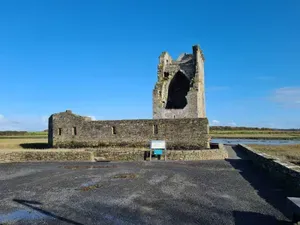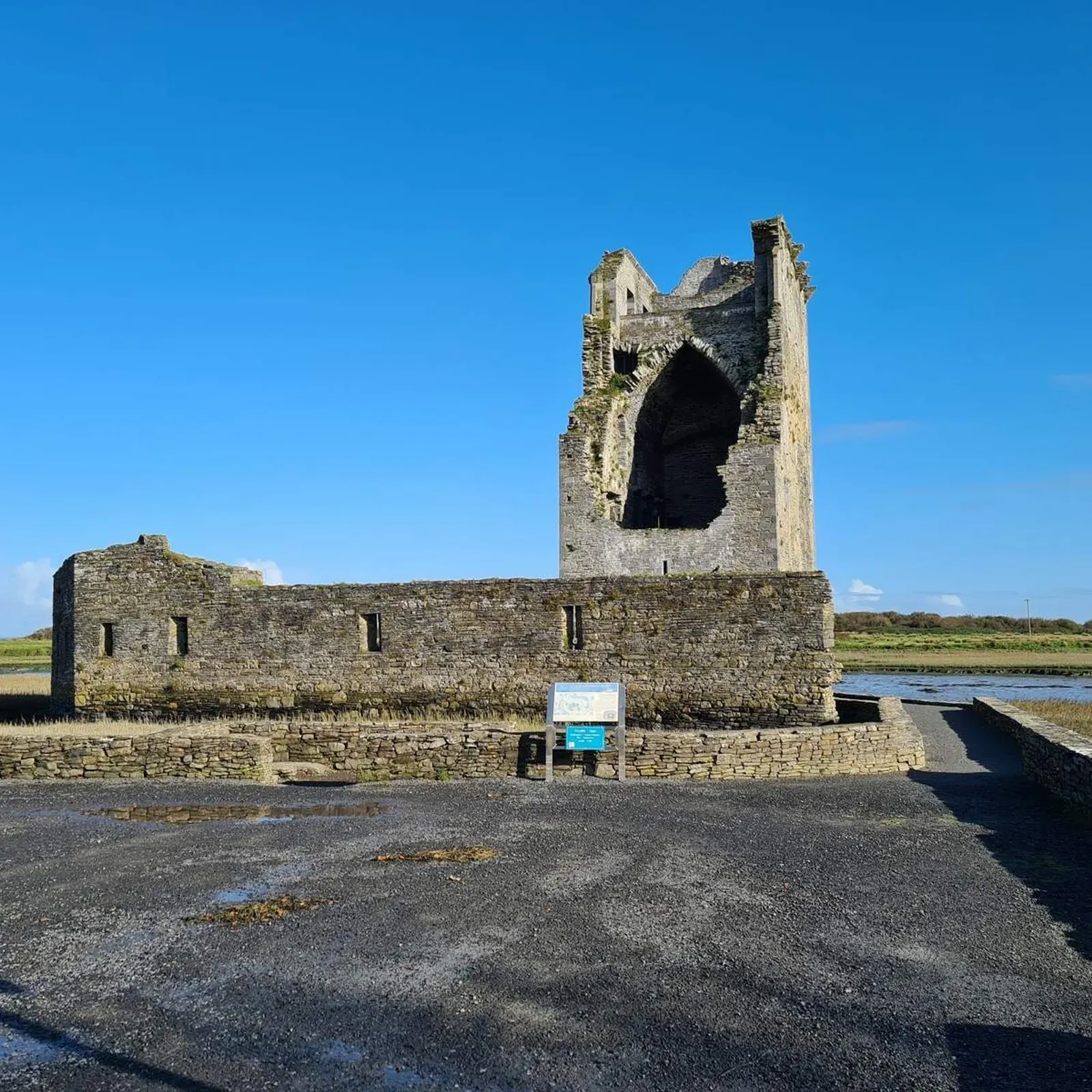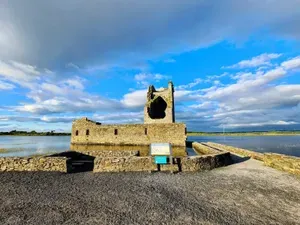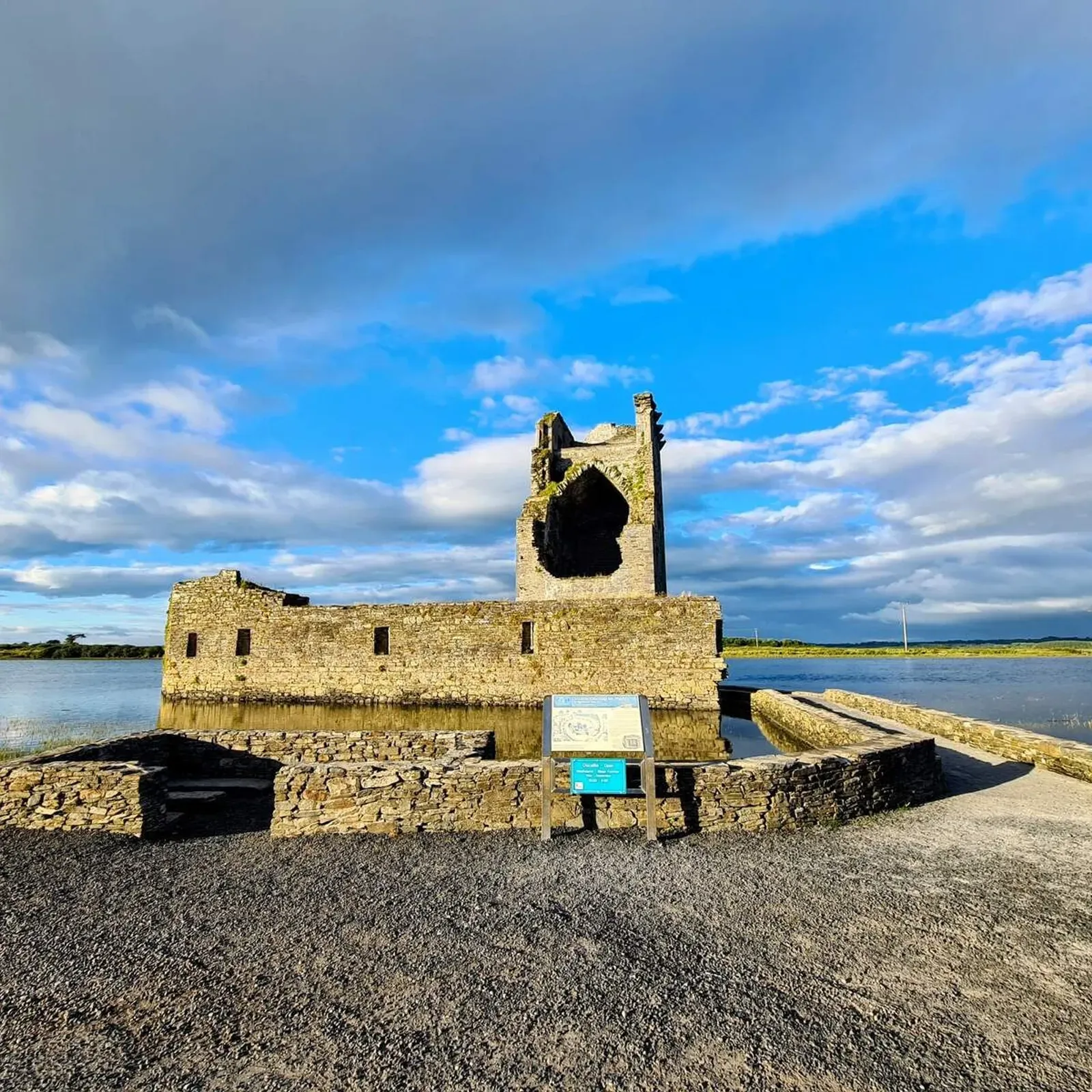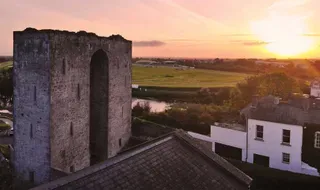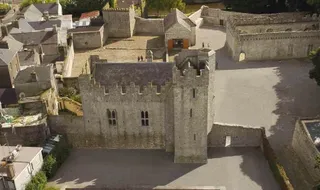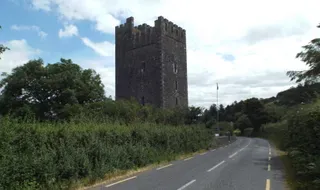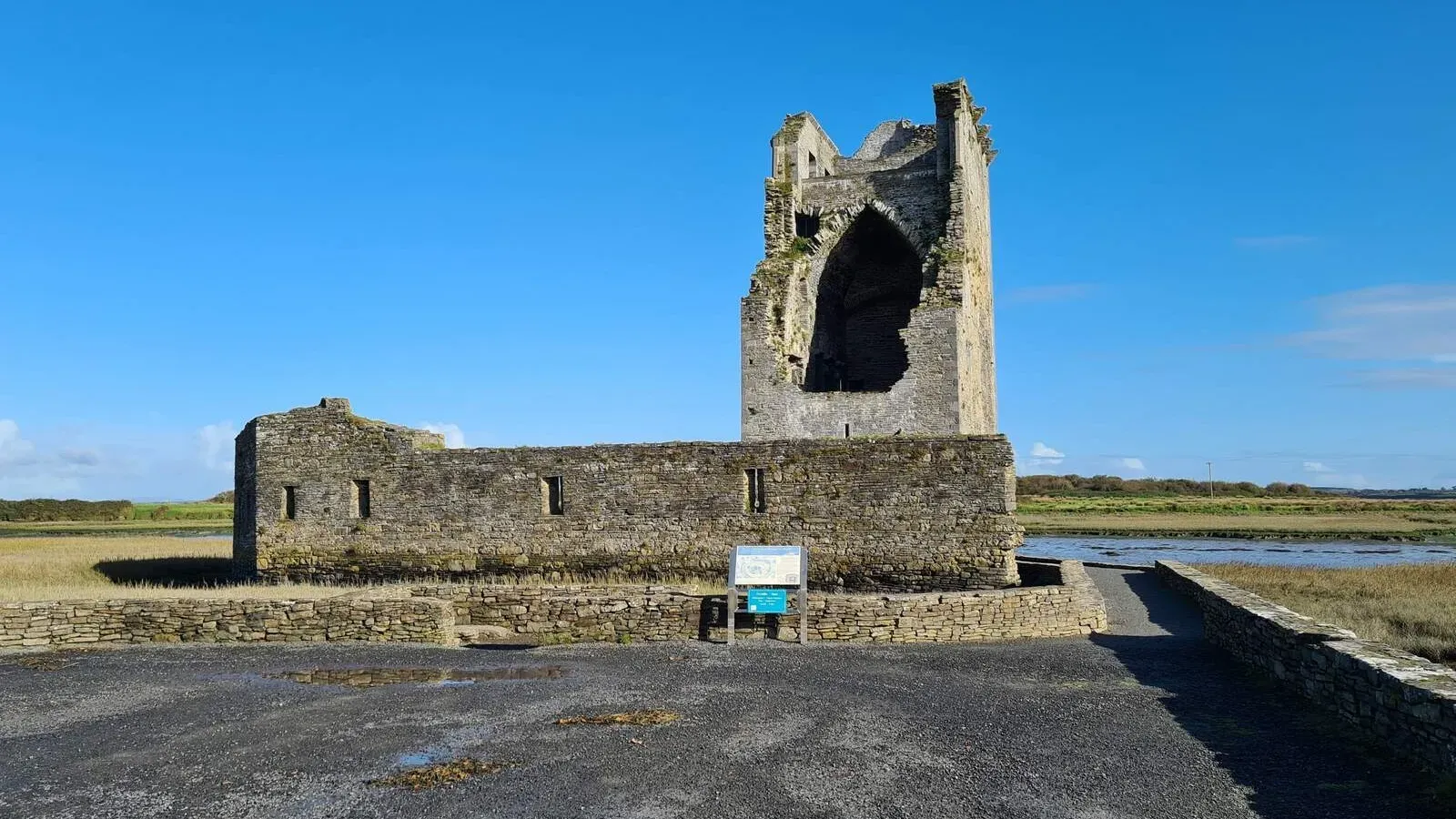
A Tower Built for Power
Carrigafoyle Castle was constructed in the late 15th century by the O’Connor Kerry clan, a powerful Gaelic family with deep roots in the region. Designed as a defensive tower house, the structure stands nearly 100 feet tall and was once surrounded by water on all sides—its name means “rock of the hole,” likely referring to a nearby sea cave or natural inlet.
Its strategic position on the Shannon Estuary gave it control over important maritime routes. The design was both elegant and formidable, with thick walls, narrow spiral staircases, and arrow loops for defense. The castle also had a drawbridge and a bawn wall enclosing the grounds, all tailored to protect the O’Connors and their allies.
A Siege to Remember
Carrigafoyle’s most dramatic moment came during the Second Desmond Rebellion in 1580, when it was besieged by English forces under Sir William Pelham. The defenders—comprising Irish, Spanish, and Italian troops loyal to the Catholic cause—held out for two days before the castle was breached by cannon fire. The aftermath was brutal, and the castle was left in ruins, never to be fully restored.
Today, the gaping hole in the eastern wall still bears witness to that violent clash.
Exploring the Ruins
Climbing to the top of Carrigafoyle Castle is not for the faint-hearted, but it’s well worth the effort. As you ascend the narrow stairs, each level opens up with clues to medieval life—vaulted rooms, fireplaces, and even slits for archers. From the rooftop, the panoramic views over the Shannon Estuary are breathtaking, stretching across marshland, sea, and sky.
While the castle is unmanned and free to explore, its structure is surprisingly intact, giving visitors a vivid sense of its original scale and purpose.
Practical Tips
Carrigafoyle is about 4 km west of Ballylongford, and signage from the village will lead you right to it. There’s a small parking area near the site, and the path to the entrance is short but uneven—good footwear is a must. As an unguided site, there are no visitor facilities, so plan accordingly.
Time your visit for low tide—you’ll spot the remains of the old harbour walls and possibly some seabirds foraging nearby. It’s a quiet, contemplative place, perfect for those who enjoy castles with atmosphere and stories etched in stone.
